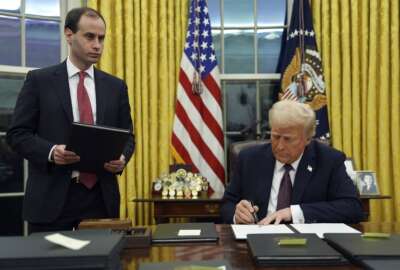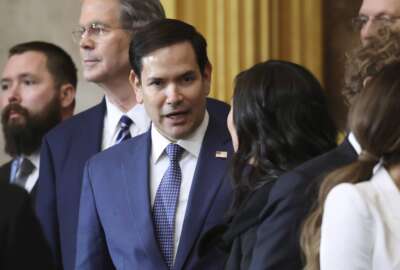HUBZone program in transition after losing 30 percent of firms
Federal agencies already have had a hard time meeting their goal to award 3 percent of contract dollars to small businesses located in Historically Underutilized...
(This story is Part 3 of Federal News Radio’s special report, The Small Business Dilemma.)
Agencies have always struggled to meet their governmentwide goals for contracting with Historically Underutilized Business Zone (HUBZone) companies, and it’s only going to get harder.
The 2010 decennial Census re-designated areas that previously had been considered HUBZones, wiping out more than 30 percent of HUBZone companies certified by the Small Business Administration to do business with agencies in that capacity.
One of those firms is Metropolitan Laboratories, based in Portsmouth, Va. President David Spinazzolo said he found out his business was no longer in a HUBZone in a letter from Census last year.

“This is one of the few federal programs that’s designed to put itself out of business someday.”
— Mark Crowley,
HUBZone Contractors National Council
“I was devastated,” Spinazzolo said.
Spinazzolo started his company more than three decades ago. He became HUBZone-certified shortly after the contracting preference program became available in 1998. In order to qualify, Spinazzolo moved his office to a HUBZone.
To qualify for a HUBZone designation, a company also must have 35 percent of its employees live in the HUBZone, where typically there is high unemployment and lower average income.
Now Spinazzolo is planning to move his company, which does environmental consulting and lab testing, to another building in Portsmouth that is in a HUBZone. He estimates he will spend at least $10,000 on the move, plus losing more money from work delays.
“I guess what sticks in my craw, if you will, is that I invest time, I invest money, I located my business to be in a HUBZone, and then boom, what amounts to almost a luck of the draw … of what Census tract I’m in,” Spinazzolo said.
Before the 2010 Census, SBA certified more than 9,200 companies, according to the HUBZone Contractors National Council. Now, SBA said, it has closer to 5,200 companies in its database with a HUBZone certification.
‘Putting itself out of business’
“This is one of the few federal programs that’s designed to put itself out of business someday,” said Mark Crowley, president of the HUBZone Contractors National Council. “When areas are excluded from the program, it means their income or unemployment levels have progressed so they no longer qualify for the program. That’s what we’re all after. That’s a good thing.”
The downside for agencies, however, is when companies are decertified, it means they must find new, qualified HUBZone firms to do business with.
In fiscal 2011, the federal government awarded 2.35 percent of its contract dollars to HUBZone businesses, amounting to $9.9 billion. Only a third of the agencies that receive a grade on the SBA procurement scorecard met their 3 percent HUBZone goal.
“Federal agencies are struggling, [as well as] the prime contractors who are supposed to be subbing out a certain percentage of their contracts to small businesses and HUBZone companies. They’re reeling,” Crowley said.
The SBA does offer a three-year grace period if a company is decertified.
But Spinazzolo said he never received any notification his company would be grandfathered, so he is operating as if he has been decertified already and is not identifying himself as HUBZone to subcontracting bids. It’s hurting him, he said, because with all things equal between two small businesses, the designation of HUBZone can be the “trump card” to win a contract.
Finding HUBZone companies
The Small Business Administration is doing outreach in HUBZone areas to identify potential new contractors. This spring and early summer, SBA initiated a HUBZone recruitment plan at its 68 district offices nationwide and will repeat that recruitment plan next year.
“What we really wanted to try to identify was, do we have contracts ready, firms out there, engaged in industries where the federal government is purchasing in? And how do we get them to be interested in the HUBZone program, be qualified for the HUBZone program and apply and get approved for the HUBZone program?” said John Shoraka, associate administrator at the SBA.
SBA also launched a pilot program for companies in HUBZones to call during evening office hours twice a month to get help.
“Firms can call in with application questions, on challenges with filling out the application, with any sort of question,” Shoraka said.
Individual agencies also are taking a proactive approach. The Environmental Protection Agency hit all of its small business contracting numbers last year except for its HUBZone goal. EPA partnered with a HUBZone association to host an event this spring in Chicago with about 200 attendees, said Jeanette Brown, EPA’s director of the Office of Small and Disadvantaged Business Utilization.
“So it was a win-win for us and for them,” she said.
Crowley said his HUBZone organization also is doing outreach and seeing greater interest in HUBZone subcontracting from large primes.
But in the meantime, the government will go through a “transitional” period. The current number of about 5,200 HUBZone companies “is not a huge number of companies, especially if you drill down to specific industries,” Crowley said. In comparison, there are 67,800 firms self-certified as woman-owned, according to SBA.
“So, the next couple of years are going to be difficult for the HUBZone spending goal,” Crowley said.
MORE FROM THE SPECIAL REPORT:
Government’s small business goal rests on DoD’s shoulders
EPA, USDA break through small business contracting barriers
Full Coverage of special report: The Small Business Dilemma
Copyright © 2025 Federal News Network. All rights reserved. This website is not intended for users located within the European Economic Area.





